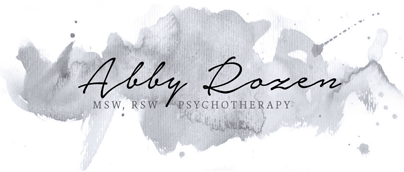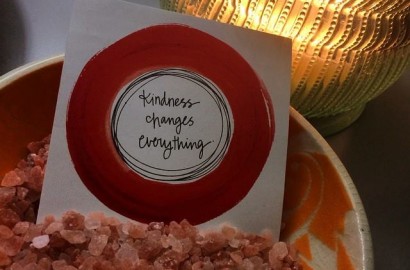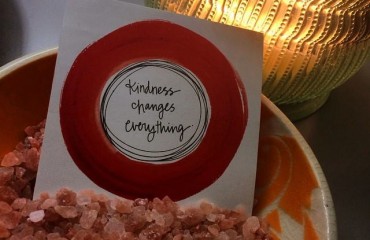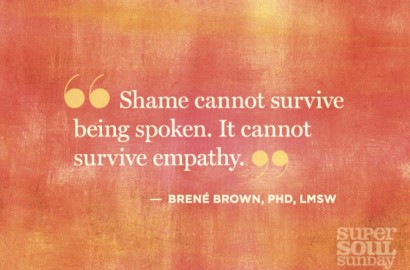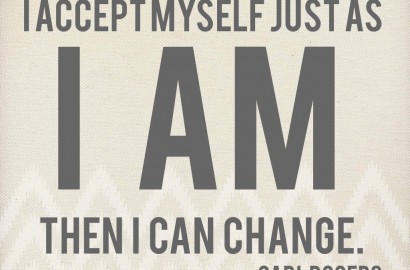Most of us have words that make us cringe, for one reason or another. It might be me a word that reminds you of something unpleasant, or that brings up a bad memory. For me, as a therapist, my cringe list consists of sneaky words that are a lot more harmful than they seem. We live in a culture that is saturated in shame, where somehow it is believed that shame will motivate us to accomplish things. The words on this list represent ways that shame sneaks its way into our narratives.
Category / Self-Acceptance
Let’s try something out: The next time a friend, colleague or family member makes a mistake or lets their imperfection show, let them know that you noticed and that it’s not ok. Make sure the coworker who missed a deadline knows that the boss is most likely going to fire him tomorrow. Did your son fail a test? Remind him a failed test means he’s stupid and worthless. When your best friend reaches for a second piece of cake, let her know just how fat, ugly and unlovable she is.
Can’t do it? Of course you can’t! We know that these are cruel lies that would hurt good people simply for being human. So, why do we find it so easy to say these things to ourselves?
I recently returned from a family vacation, and even though it was exhausting at times (remember, I said family vacation), it was a great reminder of how important self-care is to our overall wellbeing. Too often, we get caught up in the pressures of daily life and push ourselves until we’re running on empty. Just as you can only drive your car so far until it runs out of gas, your mind and body also need regular fill-ups for optimal performance.
Your feelings are valid.
Whether that made you breathe a sigh of relief or look around for the person with the “real” problems I must be talking to, your struggles are real, your experience matters and you have every right to feel the way you do. Yes, even you.
We’ve all heard that the first step to overcoming an addiction is admitting that you have a problem. Well, when it comes to mental health, the first step to recovery is allowing yourself to have a problem. Mental health issues are still dripping with stigma and often kept as deep, dark secrets, locked away tight where no one else will ever find them. Sometimes it’s because we don’t want others to see us as sick, but sometimes it’s because we’re afraid they won’t.
I love the ocean and especially floating in the waves. I find it truly calming and peaceful. Think about the last time you were in the ocean. When a wave came on, did you stand up, brace yourself and let it crash into you? Or did you let it carry you gently and ride along until it rolled off to shore?
Guilt is a difficult emotion we’re all familiar with. But how often do we say “I feel guilty” when we really mean something else?
The definition of guilt is “a feeling of responsibility or remorse for some offense, crime, wrong, etc., whether real or imagined.” The remorse and regret you feel after doing something that hurts someone is productive; it reminds you to be kind, ask for forgiveness and move on. But when we say “I felt guilty after eating all of those cookies” or “I felt guilty saying no, but I don’t have time to help her move” what crimes are we committing? I don’t know about you, but I’ve never heard of anyone being arrested for eating treats or saying no to a favour.
Do you find meditation easy? Can you still your mind, gently let go of your thoughts and focus only on your breathing? No? Me either.
The concept makes sense, but it always seemed like I was doing it wrong. I’d look around at the other yogis in my class, who all seemed so zen-like and focused, while I couldn’t get my brain to shut up. And the louder my thoughts got, the more frustrated I became. I kept telling myself, “No, no, no! You’re doing it wrong! You should be able to do this like everyone else!” Eventually I gave up trying– it was impossible to meditate with all that noise to fight off.
Despite having lots to say the idea of blogging is overwhelming – will I say the right thing? Will it sound professional? Is my grammar correct? Will people think I’m worthwhile? When it comes to the written word I have a tendency to strive for perfection. Blogging will challenge this. I need to stop waiting for all of my ducks to be lined up – now is the time.
I don’t know about you, but I hear this type of thinking a lot. On an almost daily basis someone says to me “when X will happen then I can do Y.”
